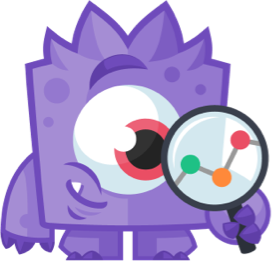In today’s fast-paced digital landscape, e-commerce continues to evolve, driven by advancements in technology. One of the most pivotal developments within this sphere is the integration of Artificial Intelligence (AI), particularly Natural Language Processing (NLP) and Machine Learning Automation. These technologies not only optimize operational efficiencies but also reshape customer experiences, paving the way for a future dictated by data-driven insights.
As companies vie for customer loyalty in the crowded e-commerce market, understanding these technologies and their applications is paramount. This article delves into recent trends and solutions while sharing industry applications and insightful case studies for a comprehensive overview of NLP and Machine Learning in the e-commerce sector.
**NLP: Redefining Customer Interactions**
Natural Language Processing, a branch of AI, focuses on the interaction between computers and humans through natural language. Its significance grows as more businesses prioritize personalized customer interactions. Tools powered by NLP assist in understanding customer sentiment, automate responses, and enhance user experience.
Text analysis is one of the core capabilities of NLP that enables businesses to assess customer feedback and reviews. Retailers can leverage this data to gauge customer sentiment towards products, services, or even the company’s brand. For instance, companies like Amazon employ NLP algorithms to analyze customer feedback, enabling them to identify potential issues and address them proactively.
Moreover, chatbots, underpinned by NLP, are transforming customer service in e-commerce. They provide real-time assistance, guide users through purchasing decisions, and resolve inquiries quickly. According to a report by Business Insider, a significant percentage of consumers are comfortable using chatbots for customer service, indicating a shift in how brands interact with customers.
**Machine Learning Automation: Enhancing Operational Efficiency**
While NLP is crucial for enhancing customer interactions, Machine Learning Automation addresses the back-end processes that support e-commerce operations. Machine Learning (ML) involves training algorithms on data to make predictions or automate tasks without explicit programming.
In inventory management, for instance, ML algorithms analyze historical sales data and trends to optimize stock levels. Companies such as Shopify are incorporating ML to automate pricing strategies, ensuring that prices remain competitive while maximizing profit margins. This predictive capability is vital in an industry where timing and pricing strategies can make or break a sale.
Additionally, Machine Learning can refine product recommendations. Vendors like Netflix and Spotify have revolutionized engagement through personalized content suggestions fueled by complex ML algorithms. E-commerce platforms apply similar methodologies, suggesting products based on past purchases, search history, and even customer behavior learned through ML models. The result? Increased customer retention and higher sales conversions.
**Trends Shaping the Future of AI in E-commerce**
The intersection of AI, especially NLP and Machine Learning, and e-commerce is defining key trends in the industry. A few emerging trends include:
1. **Voice Search Optimization**: As voice-activated devices proliferate in households, optimizing for voice search through NLP becomes critical for e-commerce businesses. According to Google, 27% of the global online population is using voice search on mobile. Brands must prepare their content and product listings for natural language queries to maintain visibility.
2. **Sentiment Analysis for Personalization**: E-commerce companies are increasingly leveraging sentiment analysis tools powered by NLP to deliver personalized shopping experiences. Marketers are focusing on tailoring content and promotions based on customer sentiment, resulting in higher engagement rates and conversion opportunities.
3. **Automated Content Generation**: NLP also aids in content generation for product descriptions, blog posts, and promotional material. Tools like OpenAI’s GPT-3 demonstrate the capability of generating human-like text, making it easier for businesses to scale their content efforts without sacrificing quality.
4. **Enhanced Fraud Detection**: Machine Learning plays a crucial role in enhancing security measures. By recognizing unusual patterns in purchasing behavior, e-commerce platforms can flag fraudulent transactions in real-time, protecting both consumers and businesses.
**Real-World Applications: Success Stories in E-commerce**
The deployment of NLP and Machine Learning in e-commerce is not merely a theoretical discussion; real-world applications demonstrate the effectiveness and potential of these technologies. Here are some notable examples:
1. **Zalando**: This European e-commerce giant has integrated NLP to refine its recommendation engine. By analyzing customer reviews and behavior, Zalando improves product suggestions, leading to a substantial uptick in sales and customer satisfaction. The company’s approach showcases the value of utilizing data-driven insights to enhance the shopping experience.
2. **eBay**: eBay employs NLP and Machine Learning to optimize their search functionality. By interpreting user queries better, eBay’s technologies can deliver more relevant search results, even understanding synonyms and various user intents. This has substantially decreased bounce rates and improved user engagement on the platform.
3. **Sephora**: The beauty retailer leverages AI and NLP for its virtual assistant, which assists customers in discovering beauty products tailored to their needs. Users can inquire about product ingredients, find suitable items based on their preferences, and even receive makeup tutorials. This level of personalization creates a unique shopping experience that retains customers’ interest.
**Navigating Challenges and Ethical Considerations**
Despite the evident benefits, companies must tackle challenges associated with implementing these technologies. Issues such as data privacy, algorithmic bias, and the potential displacement of human jobs create a complex landscape for organizations to navigate. E-commerce businesses need to invest in ensuring that their ML models respect users’ privacy and are continuously monitored for bias to promote fair outcomes.
Transparency is also essential; businesses must communicate with customers about how AI technologies contribute to their shopping experience. This can build trust and reduce feelings of unease associated with algorithms making critical decisions on behalf of consumers.
**Conclusion: A Bright Future Ahead**
As e-commerce continues to expand, the importance of AI technologies like Natural Language Processing and Machine Learning Automation cannot be overstated. By implementing these advanced technologies, businesses can enhance operational efficiencies, deliver personalized customer experiences, and stay competitive in a rapidly evolving marketplace.
It is clear that the integration of these technologies promises a bright future for e-commerce, reshaping how brands engage with customers and how transactions are conducted. However, the successful implementation will depend on addressing the inherent challenges and maximizing the potential of NLP and Machine Learning to redefine this dynamic industry for years to come.
**Sources**:
– Business Insider, “Chatbots in Customer Service: The Future of E-commerce Engagement.”
– Google Trends, “The Rise of Voice Search in the Digital Era.”
– Shopify Blog, “How Machine Learning Simplifies Pricing Strategies for Online Retailers.”
– Zalando Group, “Using Customer Data to Enhance Product Recommendations.”
– eBay Inc., “Transforming User Experience With Enhanced Search Functions.”
– Sephora Insights, “The Integration of AI in Personalizing Shopping Experiences.”
























